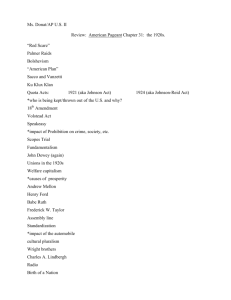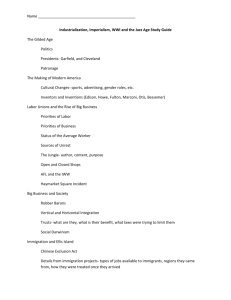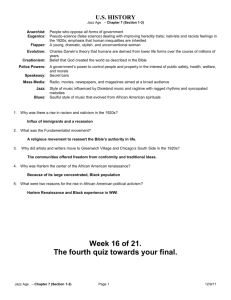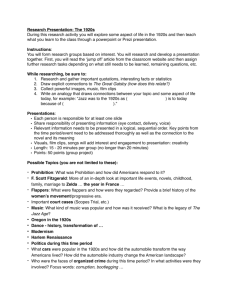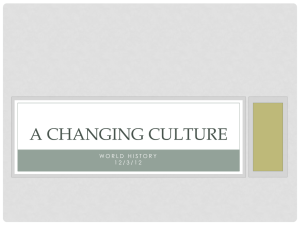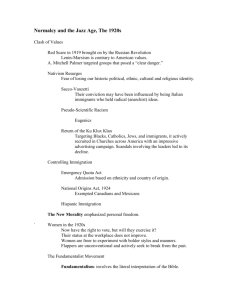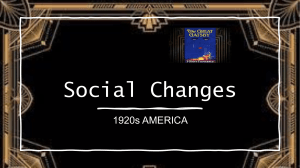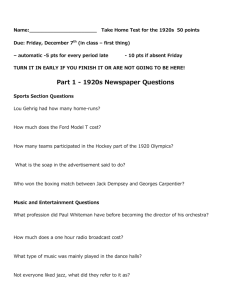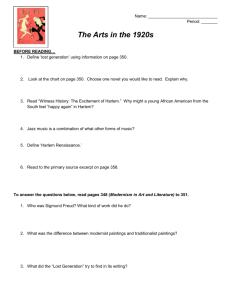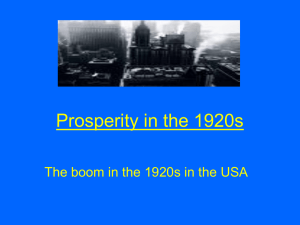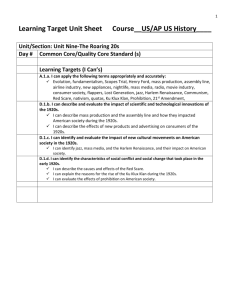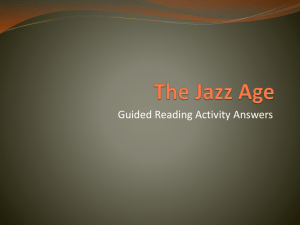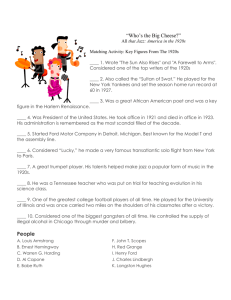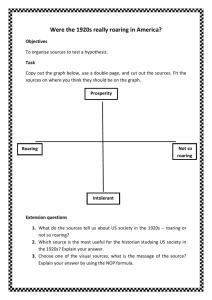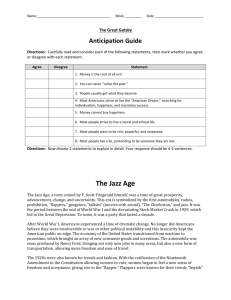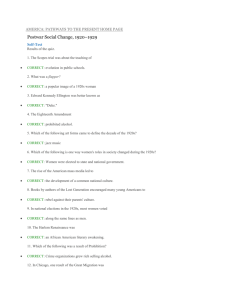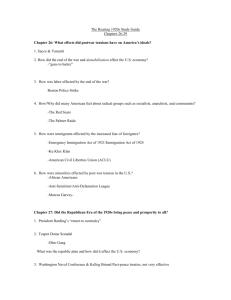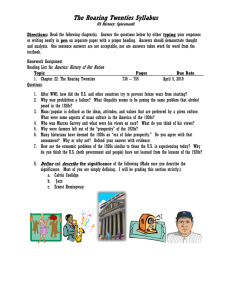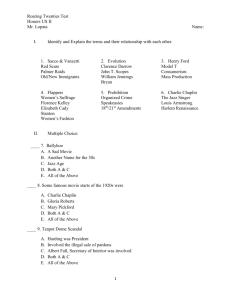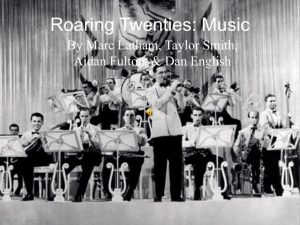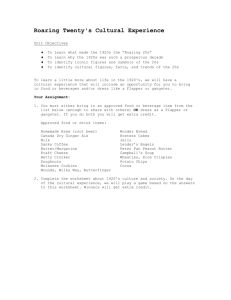Roaring Twenties Quiz Study Guide Moral Changes of the 1920s
advertisement
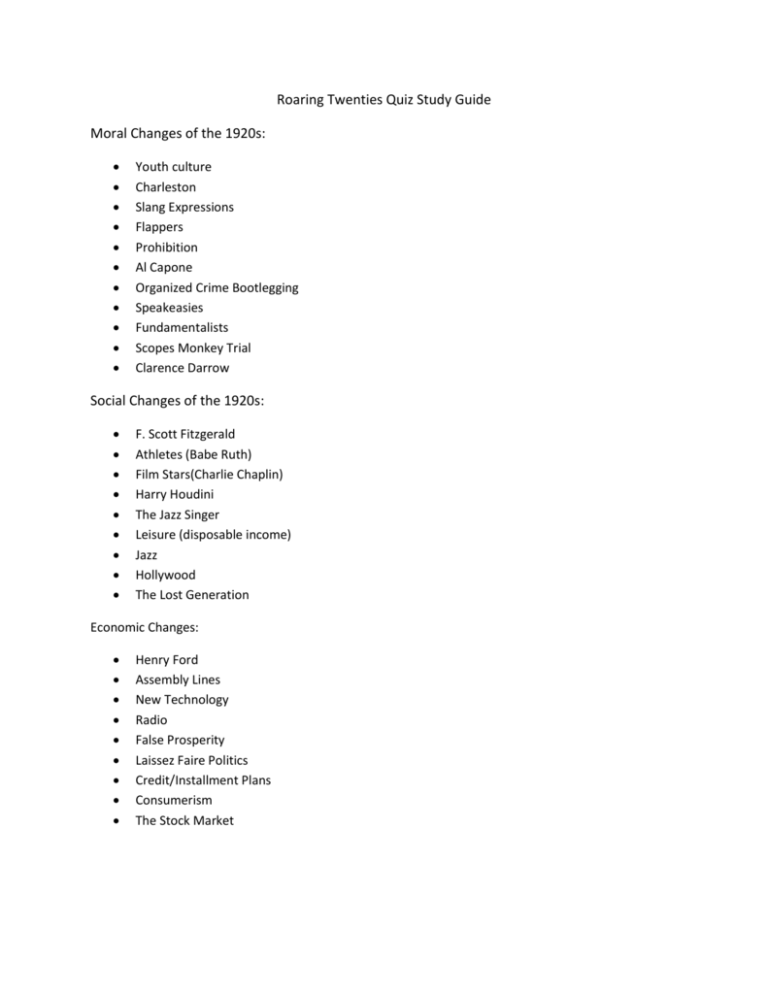
Roaring Twenties Quiz Study Guide Moral Changes of the 1920s: Youth culture Charleston Slang Expressions Flappers Prohibition Al Capone Organized Crime Bootlegging Speakeasies Fundamentalists Scopes Monkey Trial Clarence Darrow Social Changes of the 1920s: F. Scott Fitzgerald Athletes (Babe Ruth) Film Stars(Charlie Chaplin) Harry Houdini The Jazz Singer Leisure (disposable income) Jazz Hollywood The Lost Generation Economic Changes: Henry Ford Assembly Lines New Technology Radio False Prosperity Laissez Faire Politics Credit/Installment Plans Consumerism The Stock Market Political Changes: Nativism Immigration Quotas (Johnson-Reed Act) Palmer Raids Red Scare (Bolshevik Revolution) Presidents Harding and Coolidge Laissez Faire Politics Ohio Gang Teapot Dome Scandal Harlem Renaissance: UNIA and Marcus Garvey Jazz musicians (Armstrong, Smith, Ellington, etc) Langston Hughes Zora Neale Hurston Great Migration Cotton Club NAACP Revival of the KKK Birth of a Nation “Red Summer” of 1919 Key Questions to Consider: 1) To what extent were the 1920’s a modern decade? What is difference between modernity and traditionalism? 2) What underlying issues were going on within U.S. society that show that this was not truly an era of prosperity and equality? 3) How do the 1920s reflect a cultural gap between the older and younger generations? How do we still see this trend today?
